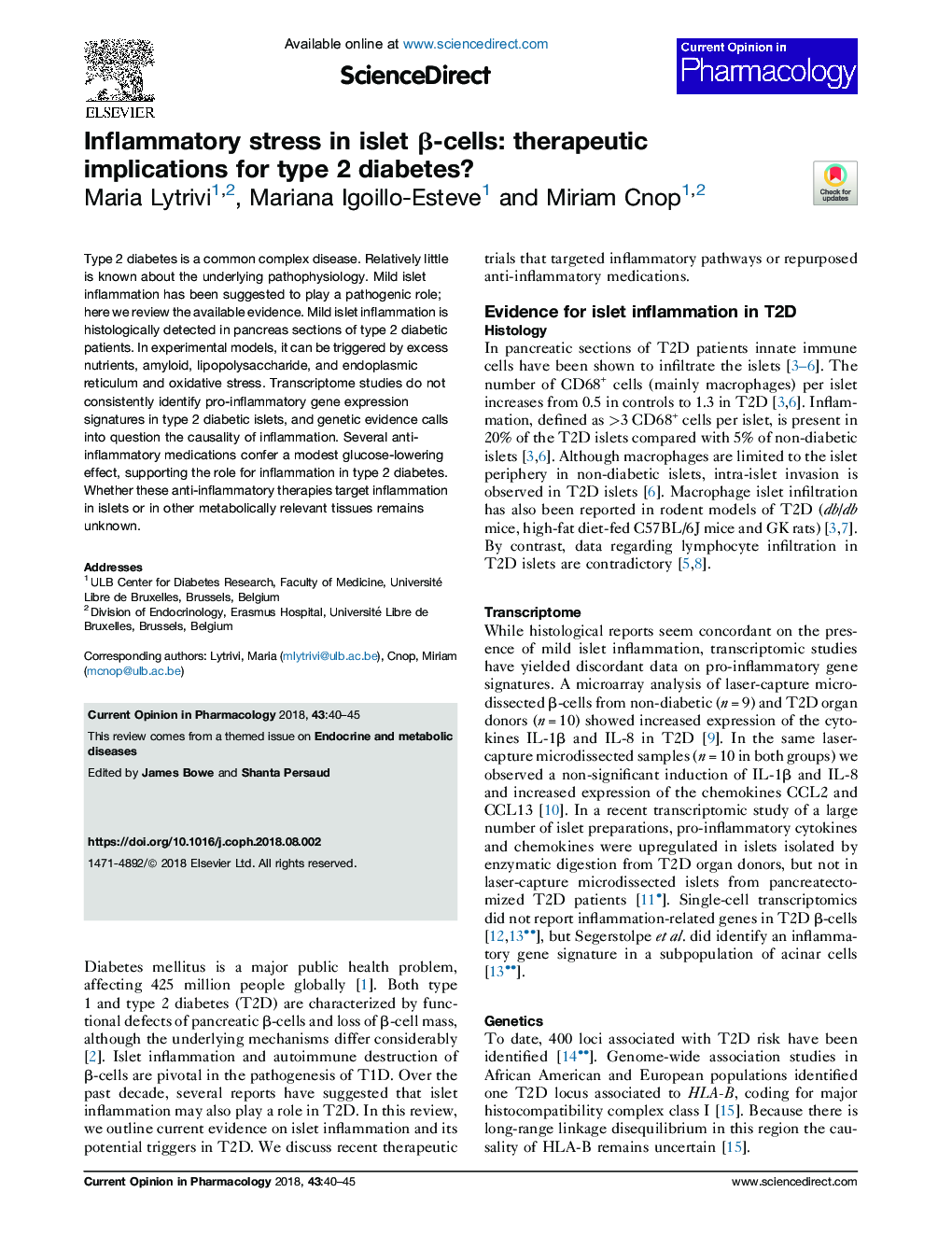| Article ID | Journal | Published Year | Pages | File Type |
|---|---|---|---|---|
| 8528539 | Current Opinion in Pharmacology | 2018 | 6 Pages |
Abstract
Type 2 diabetes is a common complex disease. Relatively little is known about the underlying pathophysiology. Mild islet inflammation has been suggested to play a pathogenic role; here we review the available evidence. Mild islet inflammation is histologically detected in pancreas sections of type 2 diabetic patients. In experimental models, it can be triggered by excess nutrients, amyloid, lipopolysaccharide, and endoplasmic reticulum and oxidative stress. Transcriptome studies do not consistently identify pro-inflammatory gene expression signatures in type 2 diabetic islets, and genetic evidence calls into question the causality of inflammation. Several anti-inflammatory medications confer a modest glucose-lowering effect, supporting the role for inflammation in type 2 diabetes. Whether these anti-inflammatory therapies target inflammation in islets or in other metabolically relevant tissues remains unknown.
Related Topics
Life Sciences
Neuroscience
Cellular and Molecular Neuroscience
Authors
Maria Lytrivi, Mariana Igoillo-Esteve, Miriam Cnop,
